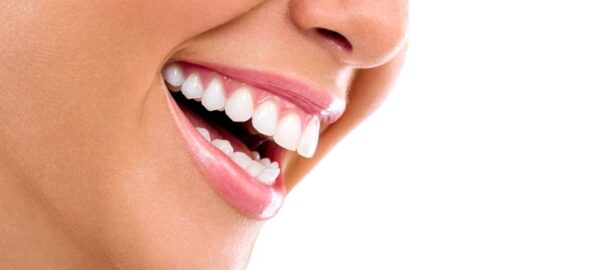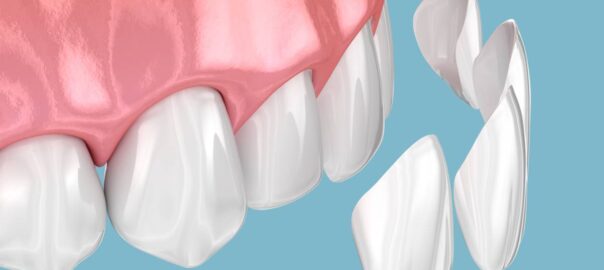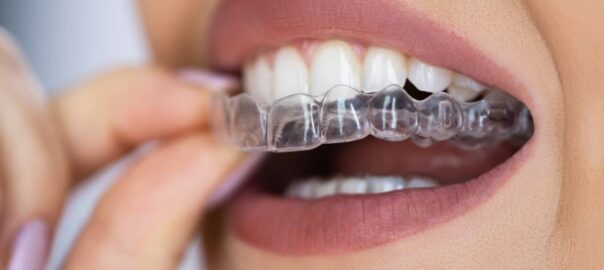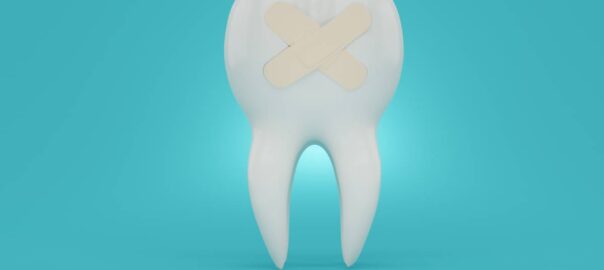Today, Invisalign braces are one of the most popular orthodontics solutions for teeth straightening and improving the bite. The reason for the popularity of Invisalign is that it is almost invisible in your mouth. To help you learn more about Invisalign, we are discussing the top 6 Invisalign FAQs below.
Top 6 Invisalign FAQs
1. What Is the Difference Between Invisalign and Braces?
Invisalign is a teeth-straightening solution that comes in the form of clear plastic aligners. During the treatment, you will be given several sets of custom-made trays that work by strategically applying pressure to your teeth and shifting their position over time.
The big advantage of Invisalign is that it can be removed when eating and brushing your teeth, compared to braces. This means that Invisalign is easier to clean, and no dietary restrictions are needed. The average timeline of the whole treatment with Invisalign is from 10 to 18 months. Invisalign can be used for both teenagers and adults.
The principle of working with traditional braces is very similar to that of Invisalign. However, they can not be removed and are more noticeable on your teeth, as they consist of metal wires and brackets. On top of that, the cleaning process is more complicated, sometimes making dental hygiene routine quite a chore. Also, in many cases, you will have dietary restrictions when wearing braces.
2. Why Do I Need Treatment with Invisalign?
Orthodontic treatment with Invisalign can solve a variety of dental and general health issues. Straight teeth are not only more aesthetically pleasing, but also make oral hygiene much easier, leading to lower risk of tooth decay and gum disease. This will also have positive effects on the digestive system, and on the whole body as a result. Misaligned bite and teeth crowding can also lead to speech impediments, sinus congestion, back and neck pain.
3. Who Can Have Invisalign Treatment?
Typically, Invisalign treatment is effective for most people when treating spacing, crowding, and bite issues. However, there are several factors that can determine if this method will be effective for you.
General oral health.
If your teeth and gums are in fairly good condition and do not require a lot of treatment, you will most likely be able to start with Invisalign right away.
Severity of misalignment.
Even though Invisalign is a very effective solution for many orthodontics issues, there are severe cases when Invisalign will not work as well. In such situations braces are a preferred solution.
The ability to commit to the treatment.
It is great that Invisalign can be removed from your mouth if need be, but it also means that there is much more temptation to do so more often. It is especially tempting to take out the trays when your teeth hurt because of the pressure applied to them. But you will have to wear the trays for 20 to 22 hours a day for the treatment to work. If you think that you can not maintain this level of discipline, braces will be a better choice as they are bonded to your teeth and can not be removed at will.
4. Is Invisalign Comfortable to Wear?
Generally, Invisalign is considered to be a more comfortable option than metal braces. Often, braces can rub against your cheeks, creating sores. Invisalign is smooth and will be less likely to cause such inconvenience. As we mentioned before, Invisalign is also easier to clean than braces, making the hygiene routine more straightforward. On top of that, Invisalign treatment requires fewer visits to your dentist compared to braces, meaning that it will save you some time.
5. What Are the Disadvantages of Invisalign Treatment?
One of disadvantages is that invisalign can be less effective for treating complicated cases compared to traditional braces. Also, the time of treatment can be significantly prolonged, if the patient can not commit to wearing the trays for 20 to 22 hours a day. Other than that, Invisalign proves to be a highly effective and comfortable solution.
6. How Do I Get Invisalign?
Schedule an appointment at Samaritan Dental to have a checkup and consultation. Our qualified DTLA dentist will determine if Invisalign is suitable for you and if any prior treatment is needed. Then e-rays, scans, and digital modeling are done. Later, they will be sent to the laboratory and used to create a set of trays right and comfortable for you.
When you receive a custom-made set of aligners, all you have to do is to wear them diligently and to see how your teeth get straighter leading to a beautiful and healthy smile.
















 Yelp
Yelp I have never had a better dental experience prior to my visit with Dr. Zabolian. It was pain free for the first time ever, the staff was friendly, accommodating to my schedule, there were no problems with my insurance claims... I am so happy I have found a dentist (after all these years) I feel so comfortable going to and also taking my family.
I have never had a better dental experience prior to my visit with Dr. Zabolian. It was pain free for the first time ever, the staff was friendly, accommodating to my schedule, there were no problems with my insurance claims... I am so happy I have found a dentist (after all these years) I feel so comfortable going to and also taking my family. 






